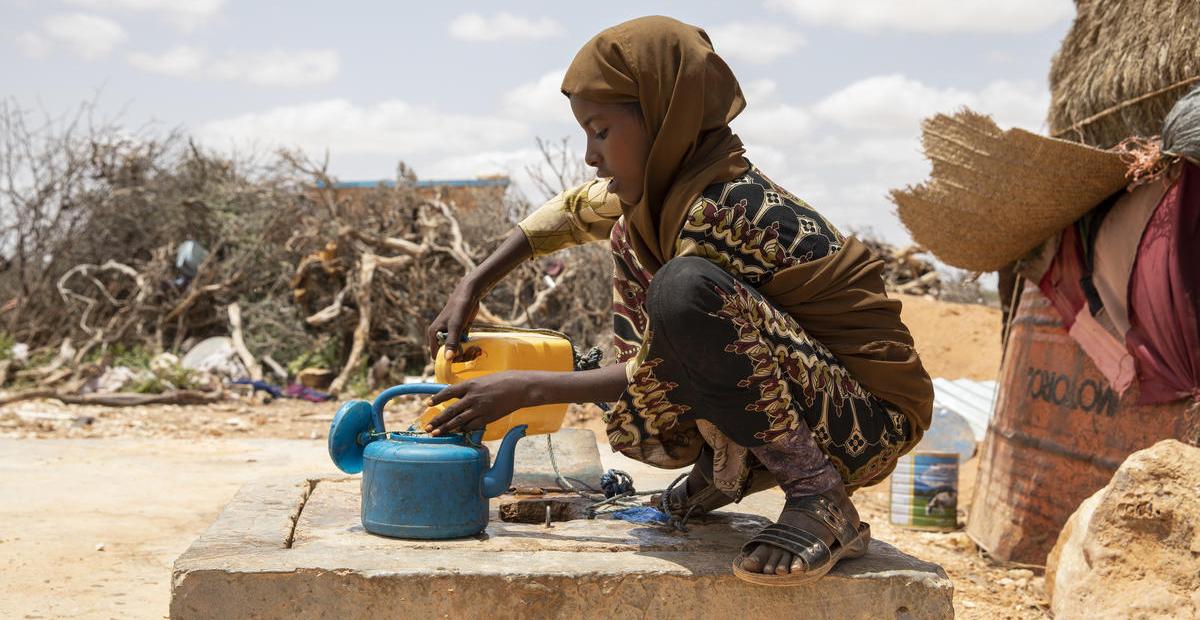WASH and Nutrition
Practitioner-friendly resources are available to support partners in integrating WASH and nutrition.

About
The resources listed below are on WASH & Nutrition and the role that WASH can play in addressing the many sources of infection. The page is updated regularly by the PRO-WASH & SCALE Award.
If you are interested in learning more about the resources on this page or would like to share your own resources, please contact PRO-WASH & SCALE at (prowashandscale@savechildren.org).
Please visit the PRO-WASH & SCALE page to learn more about additional capacity strengthening, knowledge-sharing, and applied research opportunities.
Resources and Materials
- UNC Water and Health Conference Side Event 2023
-
This section includes resources from the 2023 UNC Water and Health Conference that PRO-WASH & SCALE and USAID WASH PaLS 2 with FHI 360 convened on Assessing & addressing the specific pathways of infection in children under two: Moving towards transformational WASH. See the resources below:
- ESSENTIAL WASH ACTIONS: A Training and Reference Pack to Supplement Essential Nutrition Actions
- Exploring the Use and Appeal of Playpens to Protect Infants from Exposure to Animals, Animal Feces, and Dirt in Rural Ethiopia
- Literature Review on Effective Food Hygiene Interventions for Households in Developing Countries
- A randomised controlled feasibility trial of a BabyWASH household playspace: The CAMPI study
- Toward a Hygienic Environment for Infants and Young Children
- Human-Centered Design Guide
- Exploring The Use Of Playpens As A Feasible Option For Protecting Infants From Exposure To Animals, Feces, And Dirt In Amhara, Ethiopia
- Water, Sanitation, and Hygiene Partnerships and Learning for Sustainability (Washpals)
- CONCEPT NOTE WASHPaLS #2 SBC Research: Improving Hygienic Environments for Infants and Young Children in Ethiopia
- CONCEPT NOTE: WASHPaLS #2 SBC Research: Improving Handwashing and Food Hygiene Behaviors Specific to Infant and Young Child Feeding
Two Pathogens Pathway Studies for Children
PRO-WASH funded two applied research activities on pathogen pathway studies in Madagascar and in Kenya. The goals of both studies were to (1) identify the potential ingestion pathways of fecal pathogens (both human and animal) for children in the project implementation areas and (2) identify potential context-specific interventions for interrupting these transmission pathways. Read the Summary Brief: Pathogen Pathways Study for Children Under Two Years in the FIOVANA Intervention Areas of Southeastern Madagascar (also available in French here) or the full report here. Read the Project Report: Identifying pathogen profiles and exposure pathways for children under two years old in Samburu North and Turkana South, Kenya.
This guide presents planning considerations and a menu of data collection methods to help multisectoral food security activities. The guide can help practitioners determine whether existing evidence of fecal-oral pathogen pathways for infants and young children in an area are sufficient and provide guidance on how to design formative research activities to gather new evidence if necessary. It also provides useful insights on which data collection methods may be appropriate to measure effectiveness of WASH interventions targeting those pathways in children under the age of two.
- Resources
-
Resource Guide on WASH, Nutrition, and Child Health
This resource guide collates links to resources on topics including relationships between domestic animals and human health, pathogens from domestic animals and child health, child mouthing and soil ingestion, “Transformative” WASH and OneHealth, WASH-Nutrition (including environmental enteric dysfunction [EED]), and WASH and enteric infections. The guide was developed by PRO-WASH, USAID WASHPaLS, and the Clean, Fed, and Nurtured Coalition with input from several researchers.
- Webinars
-
Understanding Links between WASH and Child Nutrition (Part 1) (Part 2) (Part 3)
This three-part webinar series shares findings from two recently completed pathogen pathways studies to identify and prioritize environmental risks for children associated with acute and chronic undernutrition. PRO-WASH funded and Aquaya conducted the research with the Fiovana RFSA in Madagascar, and Innovations for Poverty Action carried out the research with the Nawiri RFSA in Kenya. The webinar concludes with a panel discussion featuring researchers and program staff on the broader implications of the recent studies and how USAID IPs are applying the results to improve programming.
WASH and Nutrition Thematic Discussion Series
This 2022 series builds on the previous 2021 WASH and Nutrition webinar series to dig deeper into three themes: integration of early childhood development and WASH programming, behavioral interventions to reduce infant fecal exposure, and agriculture and animal husbandry. The series concludes with a discussion on implications for programming.
WASH, Nutrition and Child Growth Thematic Discussion Series
This webinar series looks at how infant and young child growth and development is negatively impacted by persistent fecal exposure, further demonstrating why traditional WASH interventions may not suffice. The series also contains information on how to proceed.
- Partner Resources